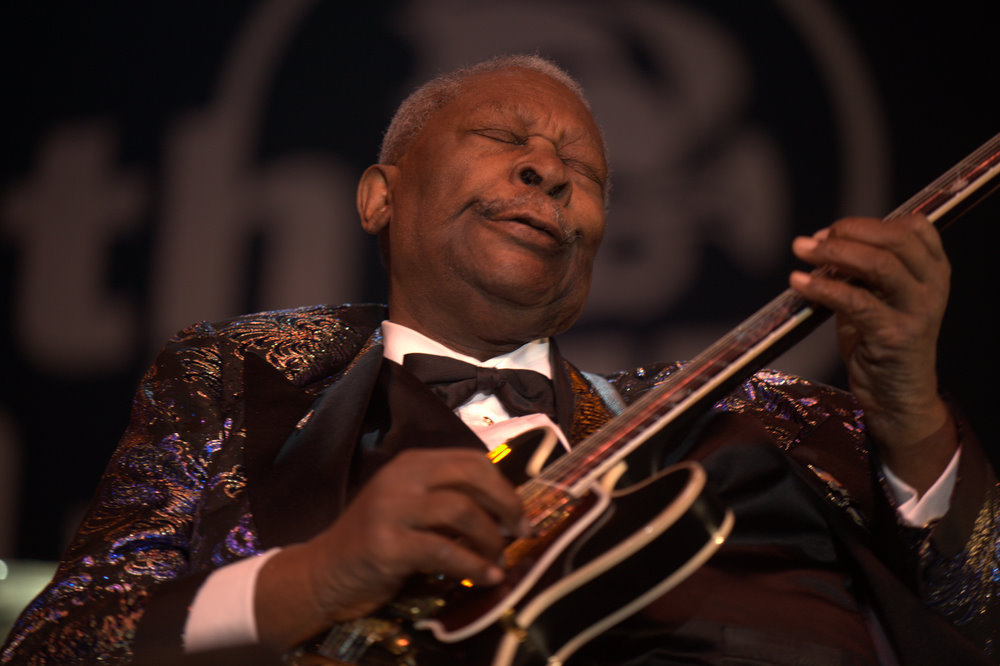
Biography
EditBiography[edit]Early life[edit]Riley Ben King was born on September 16, 1925,[13] on a cotton plantation called Berclair, near the town of Itta Bena, Mississippi,[14][12] the son of sharecroppers Albert and Nora Ella King.[14] He considered the nearby city of Indianola, Mississippi to be his home.[15] When Riley was 4 years old, his mother left his father for another man, so the boy was raised by his maternal grandmother, Elnora Farr, in Kilmichael, Mississippi.[14]
While young, King sang in the gospel choir at Elkhorn Baptist Church in Kilmichael. It seems that at the age of 12 he purchased his first guitar for $15.00,[14] although another source indicates he was given his first guitar by Bukka White, his mother's first cousin (King's grandmother and White's mother were sisters).[16] In 1943, King left Kilmichael to work as a tractor driver and play guitar with the Famous St. John's Quartet of Inverness, Mississippi, performing at area churches and on WGRM in Greenwood, Mississippi.[17][18]
In 1946, King followed Bukka White to Memphis, Tennessee. White took him in for the next ten months.[14] However, King returned to Mississippi shortly afterward, where he decided to prepare himself better for the next visit, and returned to West Memphis, Arkansas, two years later in 1948. He performed on Sonny Boy Williamson's radio program on KWEM in West Memphis, where he began to develop an audience. King's appearances led to steady engagements at the Sixteenth Avenue Grill in West Memphis and later to a ten-minute spot on the Memphis radio station WDIA.[19] The radio spot became so popular that it was expanded and became the Sepia Swing Club.[20]
Initially he worked at WDIA as a singer and disc jockey, gaining the nickname "Beale Street Blues Boy", which was later shortened to "Blues Boy" and finally to B.B.[21][22][23][24] It was there that he first met T-Bone Walker. King said, "Once I'd heard him for the first time, I knew I'd have to have [an electric guitar] myself. 'Had' to have one, short of stealing!"[25]
Career[edit]1949–2005[edit]In 1949, King began recording songs under contract with Los Angeles-based RPM Records. Many of King's early recordings were produced by Sam Phillips, who later founded Sun Records. Before his RPM contract, King had debuted on Bullet Records by issuing the single "Miss Martha King" (1949), which did not chart well. "My very first recordings [in 1949] were for a company out of Nashville called Bullet, the Bullet Record Transcription company," King recalled. "I had horns that very first session. I had Phineas Newborn on piano; his father played drums, and his brother, Calvin, played guitar with me. I had Tuff Green on bass, Ben Branch on tenor sax, his brother, Thomas Branch, on trumpet, and a lady trombone player. The Newborn family were the house band at the famous Plantation Inn in West Memphis."[26]
Performing with his famous guitar, LucilleKing assembled his own band; the B.B. King Review, under the leadership of Millard Lee. The band initially consisted of Calvin Owens and Kenneth Sands (trumpet), Lawrence Burdin (alto saxophone), George Coleman (tenor saxophone),[27] Floyd Newman (baritone saxophone), Millard Lee (piano), George Joyner (bass) and Earl Forest and Ted Curry (drums). Onzie Horne was a trained musician elicited as an arranger to assist King with his compositions. By his own admission, King could not play chords well and always relied on improvisation.[28]
King's recording contract was followed by tours across the United States, with performances in major theaters in cities such as Washington, D.C., Chicago, Los Angeles, Detroit, and St. Louis, as well as numerous gigs in small clubs and juke joints of the southern United States. During one show in Twist, Arkansas, a brawl broke out between two men and caused a fire. He evacuated along with the rest of the crowd but went back to retrieve his guitar. He said he later found out that the two men, who died in the blaze, were fighting over a woman named Lucille. He named the guitar Lucille as a reminder not to fight over women or run into any more burning buildings.[29][30][31]
Following his first Billboard Rhythm and Blues charts number one, "3 O'Clock Blues" (February 1952),[32] B.B. King became one of the most important names in R&B music in the 1950s, amassing an impressive list of hits[24] including "You Know I Love You", "Woke Up This Morning", "Please Love Me", "When My Heart Beats like a Hammer", "Whole Lotta Love", "You Upset Me Baby", "Every Day I Have the Blues", "Sneakin' Around", "Ten Long Years", "Bad Luck", "Sweet Little Angel", "On My Word of Honor", and "Please Accept My Love". This led to a significant increase in his weekly earnings, from about $85 to $2,500,[33] with appearances at major venues such as the Howard Theater in Washington and the Apollo in New York, as well as touring the entire "Chitlin' circuit". 1956 became a record-breaking year, with 342 concerts booked and three recording sessions.[34] That same year he founded his own record label, Blues Boys Kingdom, with headquarters at Beale Street in Memphis. There, among other projects, he produced artists such as Millard Lee and Levi Seabury.[15] In 1962, King signed to ABC-Paramount Records, which was later absorbed into MCA Records, and which itself was later absorbed into Geffen Records. In November 1964, King recorded the Live at the Regal album at the Regal Theater.[32] King later said that Regal Live "is considered by some the best recording I've ever had . . . that particular day in Chicago everything came together . . ."[35]
B.B. King performs in Germany in 1971.From the late '60s, new manager Sid Seidenberg pushed King into a different type of venue as blues-rock performers like Clapton and Paul Butterfield were popularizing an appreciation of blues music among white audiences.[36]
King gained further visibility among rock audiences as an opening act on the Rolling Stones' 1969 American Tour.[37] He won a 1970 Grammy Award for the song "The Thrill Is Gone";[38] his version became a hit on both the pop and R&B charts. It also gained the number 183 spot in Rolling Stone magazine's 500 Greatest Songs of All Time.[39]
King was inducted into the Blues Hall of Fame in 1980, the Rock and Roll Hall of Fame in 1987, and the Official Rhythm & Blues Music Hall of Fame in 2014.[8][40] In 2004, he was awarded the international Polar Music Prize, given to artists "in recognition of exceptional achievements in the creation and advancement of music."[41]
King performing in New York in the late 1980sFrom the 1980s to his death in 2015, he maintained a highly visible and active career, appearing on numerous television shows and performing 300 nights a year. In 1988, King reached a new generation of fans with the single "When Love Comes to Town", a collaborative effort between King and the Irish band U2 on their Rattle and Hum album.[32] In December 1997, he performed in the Vatican's fifth annual Christmas concert and presented his trademark guitar "Lucille" to Pope John Paul II.[42] In 1998, he appeared in The Blues Brothers 2000, playing the part of the lead singer of the Louisiana Gator Boys, along with Eric Clapton, Dr. John, Koko Taylor and Bo Diddley. In 2000, he and Clapton teamed up again to record Riding With the King, which won a Grammy Award for Best Traditional Blues Album.[43]
Discussing where he took the Blues, from "dirt floor, smoke in the air" joints to grand concert halls, King said the Blues belonged everywhere beautiful music belonged. He successfully worked both sides of the commercial divide, with sophisticated recordings and "raw, raucous" live performance.[35]
2006–2015: farewell tour and later activities[edit]In 2006, King went on a "farewell" world tour, although he remained active afterward during the last years of his life.[44] The tour was partly supported by Northern Irish guitarist Gary Moore, with whom King had previously toured and recorded, including the song "Since I Met You Baby". It started in the United Kingdom, and continued with performances in the Montreux Jazz Festival and in Zürich at the Blues at Sunset. During his show in Montreux at the Stravinski Hall he jammed with Joe Sample, Randy Crawford, David Sanborn, Gladys Knight, Leela James, Andre Beeka, Earl Thomas, Stanley Clarke, John McLaughlin, Barbara Hendricks and George Duke.[45]
B.B. King at Roy Thomson Hall, Toronto, Ontario, May 2007In June 2006, King was present at a memorial of his first radio broadcast at the Three Deuces Building in Greenwood, Mississippi, where an official marker of the Mississippi Blues Trailwas erected. The same month, a groundbreaking was held for a new museum, dedicated to King.[46] in Indianola, Mississippi.[47] The B.B. King Museum and Delta Interpretive Centeropened on September 13, 2008.[48]
In late October 2006, King recorded a concert album and video entitled B.B. King: Live at his B.B. King Blues Clubs in Nashville and Memphis. The four-night production featured his regular B.B. King Blues Band and captured his show as he performed it nightly around the world. Released in 2008, it was his first live performance recording in over a decade.[49]
In 2007, King played at Eric Clapton's second Crossroads Guitar Festival[50] and contributed the songs "Goin' Home", to Goin' Home: A Tribute to Fats Domino (with Ivan Neville's DumpstaPhunk)[51] and "One Shoe Blues" toSandra Boynton's children's album Blue Moo, accompanied by a pair of sock puppets in a music video for the song.[52]
European Tour 2009, Vienna, July 2009In the summer of 2008, King played at the Bonnaroo Music and Arts Festival in Manchester, Tennessee, where he was given a key to the city.[53] Also in 2008, he was inducted into theHollywood Bowl Hall of Fame.[54]
King performed at the Mawazine festival in Rabat, Morocco, on May 27, 2010.[55] In June 2010, King performed at the Crossroads Guitar Festival with Robert Cray, Jimmie Vaughan, andEric Clapton.[56] He also contributed to Cyndi Lauper's album Memphis Blues, which was released on June 22, 2010.[57]
President Barack Obama and B.B. King singing "Sweet Home Chicago" on February 21, 2012In 2011, King played at the Glastonbury Music Festival,[58] and in the Royal Albert Hall in London, where he recorded a concert video.[59]
On February 21, 2012, King was among the performers of "In Performance at the White House: Red, White and Blues", during which President Barack Obama sang part of "Sweet Home Chicago".[60] King recorded for the debut album of rapper and producer Big K.R.I.T., who also hails from Mississippi.[61] On July 5, 2012, King performed a concert at the Byblos International Festival in Lebanon.[62]
On May 26, 2013, King appeared at the New Orleans Jazz Festival.[63]
On October 3, 2014, not feeling well enough, King had to stop his live performance at the House of Blues in Chicago, Illinois. A doctor diagnosed King with dehydration and exhaustion, and the eight remaining shows of his ongoing tour had to be cancelled. King didn't schedule any additional shows for the remainder of the year.[64][65]
Illness and death[edit]After the cancellation of the remaining eight shows of his 2014 tour because of health problems, King announced on October 8, 2014, he was back at home to recuperate.[65] On May 1, 2015, after two hospitalizations caused by complications from high blood pressure and diabetes, King announced on his website that he was in hospice care at his home in Las Vegas, Nevada.[66] He died in his sleep on May 14, 2015 from a series of small strokes caused by Type 2 diabetes.[67]
Personal life[edit]King was married twice, to Martha Lee Denton, 1946 to 1952, and to Sue Carol Hall, 1958 to 1966. The failure of both marriages has been attributed to the heavy demands made on the marriage by King's 250 performances a year.[14] It is reported that he fathered 15 children and, as of 2004, had 50 grandchildren.[14] He lived with Type II diabetes for over 20 years and was a high-profile spokesperson in the fight against the disease, appearing in advertisements for diabetes-management products along with American Idolseason 9 contestant Crystal Bowersox.[45][68]
King was an FAA certificated private pilot and learned to fly in 1963 at what was then Chicago Hammond Airport in Lansing, Illinois.[69][70] He frequently flew to gigs but, under the advice of his insurance company and manager in 1995, was asked to fly only with another certified pilot. As a result, he stopped flying around the age of 70.[71]
External video Oral History, B.B. King reflects on his greatest musical influences. interview date August 3, 2005, NAMM (National Association of Music Merchants) Oral History LibraryKing's favorite singer was Frank Sinatra. In his autobiography he spoke about how he was a "Sinatra nut" and how he went to bed every night listening to Sinatra's classic album In the Wee Small Hours. Sinatra had gotten King into the main clubs in Las Vegas during the 1960s. He credited Sinatra for opening doors to black entertainers who were not given the chance to play in "white-dominated" venues.[72]
King was a Christian.[73]
Equipment[edit]For more information about King's guitar, see Lucille (guitar)."When I sing, I play in my mind; the minute I stop singing orally, I start to sing by playing Lucille."[74]
B.B. King used simple equipment. He played guitars made by various manufacturers early in his career: he played a Fender Telecaster on most of his recordings with RPM Records (USA).[75] However, he was best known for playing variants of the Gibson ES-355. In 1980, Gibson Guitar Corporation launched the B.B. King Lucille model. In 2005, Gibson made a special run of 80 Gibson Lucilles, referred to as the "80th Birthday Lucille", the first prototype of which was given as a birthday gift to King, and which he used ever since.[76]
King used a Lab Series L5 2×12" combo amplifier and had been using this amplifier for a long time. It was made by Norlin Industries for Gibson in the 1970s and 1980s. Other popular L5 users are Allan Holdsworth and Ty Tabor of King's X. The L5 has an onboard compressor, parametric equalization, and four inputs. King also used a Fender Twin Reverb.[77]
He used his signature model strings "Gibson SEG-BBS B.B. King Signature Electric Guitar Strings" with gauges: 10–13–17p–32w–45w–54w and D'Andrea 351 MD SHL CX (Medium 0.71mm, Tortoise Shell, Celluloid) Picks.[77]
B.B. King's Blues Club[edit]Sign outside B.B. King's Blues Club on Beale Street, MemphisIn 1991, B.B. King's Blues Club opened on Beale Street in Memphis, and in 1994, a second club was launched at Universal City Walk in Los Angeles. A third club in New York City's Times Square opened in June 2000. Two further clubs opened at Foxwoods Casino in Connecticut in January 2002[78] and another in Nashville in 2003.[79] Another club opened in Orlando in 2007.[80] A club in West Palm Beach opened in the fall of 2009[81] and an additional one, based in the Mirage Hotel, Las Vegas, opened in the winter of 2009.[82]
Philanthropy[edit]In 2002, King signed on as an official supporter of Little Kids Rock, a nonprofit organization that provides free musical instruments and instruction to children in underprivileged public schools throughout the United States. He sat on the organization's Honorary Board of Directors.[83]
Television and other appearances[edit]King made guest appearances in numerous popular television shows, including The Cosby Show, The Young and the Restless, General Hospital,[84] The Fresh Prince of Bel-Air, Sesame Street,[85] Married... with Children,Sanford and Son, and Touched by an Angel. He also had a cameo in the movies Spies Like Us[86] and Heart and Souls. He voiced a character in the last episode of Cow and Chicken.[87]
In 2000, the children's show Between The Lions featured a singing character named "B.B. the King Of Beasts", modeled on the real King.[88]
A feature documentary about King narrated by Morgan Freeman and directed by Jon Brewer was released on October 15, 2012.[89]
King appeared twice on the PBS television series Austin City Limits, in 1983 and 1996.
Commercials[edit]King, who was diabetic, appeared in several television commercials for OneTouch Ultra in the 2000s and early 2010s.[90] He appeared in a 2014 commercial for the Toyota Camry with his guitar Lucille.[91]
Honors and awards[edit]B.B. King receiving thePresidential Medal of Freedom from George W. Bush, December 2006In 1977, he was awarded an honorary Doctor of Music by Yale University.[92]In 1980, he was inducted into the Blues Hall of Fame.[93]In 1987, he was inducted into the Rock & Roll Hall of Fame.[94]In 1990, he was awarded the National Medal of Arts.[95]In 1991, he was awarded the National Heritage Fellowship from the NEA.[96]A commemorative guitar pickhonoring "B.B. King Day" in Portland, Maine.King was awarded the Kennedy Center Honors in 1995. This is given to recognize "the lifelong accomplishments and extraordinary talents of our nation's most prestigious artists."[97]In 2004, the Royal Swedish Academy of Music awarded him the Polar Music Prize for his "significant contributions to the blues".[41]On December 15, 2006, President George W. Bush awarded King the Presidential Medal of Freedom.[98]On May 27, 2007, King was awarded an honorary doctorate in music by Brown University.[99]On May 14, 2008, King was presented with the keys to the city of Utica, New York; and on May 18, 2008, the mayor of Portland, Maine, Edward Suslovic, declared the day "B.B. King Day" in the city. Prior to King's performance at the Merrill Auditorium, Suslovic presented King with the keys to the city.[100]In 2009, Time named B.B. King No.3 on its list of the 10 best electric guitarists.[101]Each year during the first week in June, a B.B. King Homecoming Festival is held in Indianola, Mississippi.[102]A Mississippi Blues Trail marker was added for B.B. King, commemorating his birthplace.[103]On May 29, 2010, Sabrosa Park (at the small town of Sabrosa, north of Portugal) was renamed B.B. King Park in honor of King and the free concert he played before 20,000 people.[citation needed]Grammy Awards[edit]Years reflect the year in which the Grammy was awarded, for music released in the previous year.
1971: Best Male R&B Vocal Performance for "The Thrill Is Gone"1982: Best Ethnic or Traditional Recording for "There Must Be a Better World Somewhere"1984: Best Traditional Blues Recording for "Blues 'n Jazz"1986: Best Traditional Blues Recording for "My Guitar Sings the Blues"1991: Best Traditional Blues Recording for "Live at San Quentin"1992: Best Traditional Blues Album for "Live at the Apollo"1994: Best Traditional Blues Album for "Blues Summit"1997: Best Rock Instrumental Performance for "SRV Shuffle"2000: Best Traditional Blues Album for "Blues on the Bayou"2001: Best Traditional Blues Album for "Riding with the King"2001: Best Pop Collaboration with Vocals for "Is You or Is You Ain't (Baby)"2003: Best Traditional Blues Album for "A Christmas Celebration of Hope"2003: Best Pop Instrumental Performance for "Auld Lang Syne"2006: Best Traditional Blues Album for "80"2009: Best Traditional Blues Album for "One Kind Favor"King was given a Grammy Lifetime Achievement Award in 1987.[104]
A Grammy Hall of Fame Award was given to "The Thrill is Gone" in 1998. The award is given to recordings that are at least 25 years old and that have "qualitative or historical significance".[105]
Discography[edit]Main article: B.B. King discographyStudio albums[edit]Singin' the Blues (1956)[106]The Blues (1958)B.B. King Wails (1959)King of the Blues (1960)Sings Spirituals (1960)The Great B.B. King (1960)My Kind of Blues (1961)Blues For Me (1961)Blues in My Heart (1962)Easy Listening Blues (1962)B.B. King (1963)Mr. Blues (1963)Confessin' the Blues (1966)Blues on Top of Blues (1968)Lucille (1968)Live & Well (1969)Completely Well (1969)Indianola Mississippi Seeds (1970)B.B. King in London (1971)L.A. Midnight (1972)Guess Who (1972)To Know You Is to Love You (1973)Friends (1974)King Size (1977)Midnight Believer (1978)Take It Home (1979)There Must Be a Better World Somewhere (1981)Love Me Tender (1982)Blues 'N' Jazz (1983)Six Silver Strings (1985)King of the Blues: 1989 (1988)There Is Always One More Time (1991)Blues Summit (1993)Lucille & Friends (1995)Deuces Wild (1997)Blues on the Bayou (1998)Let the Good Times Roll (1999)Makin' Love Is Good for You (2000)Riding with the King (2000, with Eric Clapton)A Christmas Celebration of Hope (2001)Reflections (2003)B.B. King & Friends: 80 (2005)One Kind Favor (2008)
Preferences
EditEulogies
EditNYT. Eulogy by Tim weiner
http://www.nytimes.com/2015/05/16/arts/music/b-b-king-blues-singer-dies-at-89.html?_r=0




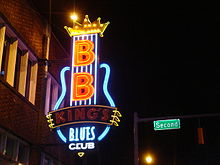
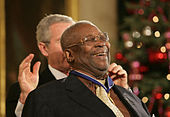
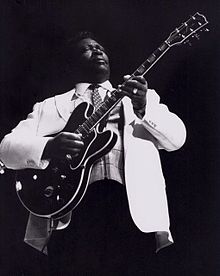
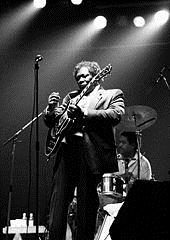
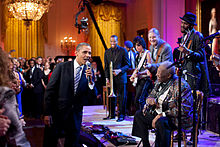
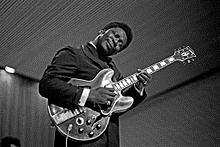
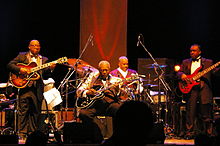
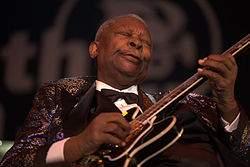
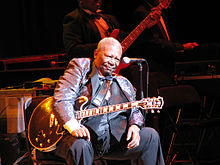



 Send to a Friend
Send to a Friend